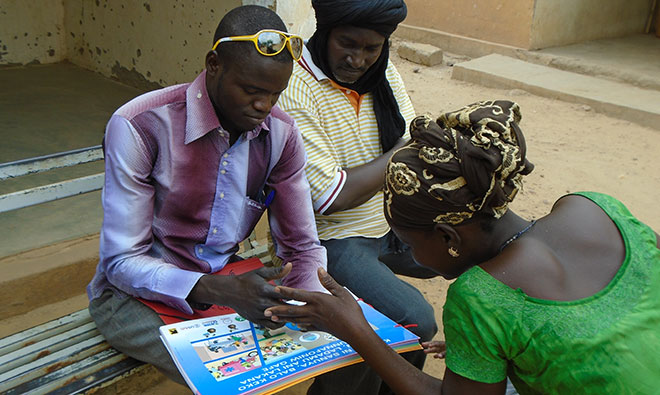
The SPRING/Mali program closed out on March 31, 2016, after 15 months of work in-country improving nutritional status of women and children, with special emphasis on building resilience in Mali’s Mopti region by treating and preventing undernutrition. SPRING/Mali’s efforts were primarily focused on targeting the critical 1,000 days of pregnancy and a child’s first two years, through promotion of improved nutrition-sensitive agricultural practices and of key water, sanitation, and hygiene (WASH) behaviors.
The project focused on 20 communes in the Feed the Future zone of influence in Mopti Region, through a coordinated mix of trainings, community meetings, and farmer nutrition schools. Activities were coordinated with other nutrition projects in Mopti to ensure maximum coverage over communities, and complementary activities with Cereal Value Chain (CVC) Project, the Livestock for Growth (L4G) Project, and the WASHPlus Project in target communes. In these communities, SPRING/Mali focused on three objectives: increasing access to diverse and quality foods (including consumption of locally grown crops like okra, moringa, and papaya), increasing access to quality nutrition services (such as improved breastfeeding practices complementary feeding practices through local health workers), and increased demand for key agriculture, nutrition, and WASH-related practices.
In its 15 months, SPRING/Mali reached its target communes at a large scale, running trainings that resulted in over 4,500 handwashing stations, training over 500 community leaders in farmer nutrition schools, and reaching over 8,500 villagers with critical hygiene information. In total, over 165,723 community members were reached through SPRING/Mali nutrition-specific and nutrition-sensitive services.